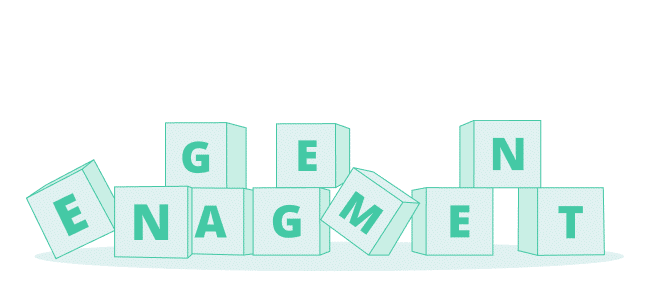Emotional intelligence. What is it anyway? We all know the traditional logical intelligence, but it’s near cousin, perhaps not so much. The role of emotional intelligence (abbreviated as EI) has emerged as a critical factor in personal and professional success. It’s soon become much more than just a buzzword, emotional intelligence encompasses a set of essential skills that allow individuals to navigate emotions, build meaningful relationships, and thrive in diverse environments. This bestows a professional with the ability to be perceived (And perhaps be) and understanding and well-liked figure in the office setting.
From effective leadership to fostering a positive work culture, emotional intelligence plays a pivotal role in shaping the success of individuals and organizations alike.
What is Emotional Intelligence?
Emotional intelligence refers to the ability to recognize, understand, and manage one’s own emotions, as well as the emotions of others. It involves being aware of our feelings, empathy towards others, and harnessing emotions to facilitate better decision-making and interpersonal interactions. There are five key components of emotional intelligence:
- Self-Awareness: Understanding one’s own emotions, strengths, weaknesses, and the impact they have on others.
- Self-Regulation: Managing and controlling emotions, avoiding impulsive behavior, and maintaining composure in challenging situations.
- Motivation: Being driven by intrinsic goals, staying resilient in the face of setbacks, and being passionate about personal and professional growth.
- Empathy: Recognizing and understanding the emotions of others, showing compassion, and being able to relate to their experiences.
- Social Skills: Nurturing effective communication, building and maintaining relationships, and working collaboratively in teams.
How Should Leaders Use Emotional Intelligence?
Leaders who possess high emotional intelligence tend to excel in inspiring and guiding their teams. By honing their Emotional Intelligence skills, leaders can create a positive and inclusive work environment, resulting in increased employee satisfaction and productivity.
Wondering how you can become this kind of leader? Let’s get you started – here’s how leaders can utilize emotional intelligence:
- Self-Awareness for Authentic Leadership: Self-aware leaders understand their strengths and weaknesses, which enables them to lead with authenticity and humility. They are open to feedback and continually strive for personal growth – for the sake of their employees.
- Empathy for Effective Communication: Leaders who demonstrate empathy build trust and strong relationships with their team members. By understanding their employees’ perspectives, leaders can address concerns, offer support, and foster a sense of belonging – it can be a good idea to give employees the opportunity to show the leader empathy aswell..
- Self-Regulation for Conflict Resolution: Emotional self-regulation helps leaders maintain composure during challenging situations, allowing them to resolve conflicts constructively and avoid detrimental outbursts. Taking a deep breath in a tough situation can save a lot of future work.
- Motivation for Inspiring Others: Leaders with high motivation inspire their teams to go above and beyond. They set ambitious yet achievable goals, motivate their employees, and celebrate successes, creating a culture of continuous improvement. Keep in mind that being too highly motivated can set the bar too high and make employees feel insufficient or overwhelmed.
How Do You Test or Measure Emotional Intelligence?
Measuring emotional intelligence can be done through various assessments and tools. One of the most widely used methods is the Emotional Intelligence Appraisal (EIA) developed by Dr. Travis Bradberry and Dr. Jean Greaves. The EIA assesses an individual’s Emotional Intelligence across the five key components, providing valuable insights into areas for development.
Other methods include Employee Development Dialogues, 360-degree feedback surveys, and simulation-based assessments. These assessments provide individuals with valuable feedback and strategies to enhance their emotional intelligence competencies.
How is Emotional Intelligence Used to Improve the Work Environment?
A work environment that prioritizes emotional intelligence fosters several benefits for both employees and the organization:
- Enhanced Communication: With improved emotional intelligence, employees communicate more effectively, leading to fewer misunderstandings and conflicts.
- Conflict Resolution: Emotional intelligence equips individuals with the skills to handle conflicts constructively, promoting a harmonious and collaborative work environment.
- Increased Employee Engagement: When leaders show empathy and value their employees’ emotions, it increases job satisfaction and employee engagement.
- Greater Resilience: Employees with higher emotional intelligence are more resilient in the face of challenges and uncertainties, enabling them to navigate tough times with optimism.
- Improved Team Dynamics: Emotional intelligence fosters a sense of camaraderie and trust within teams, resulting in higher team productivity and creativity.
Do you feel in tune with your emotions?
Emotional intelligence is not just an inherent trait but a skill that can be developed and nurtured. As organizations recognize the importance of Emotional Intelligence in fostering healthy work environments and driving success, investing in emotional intelligence training and assessments becomes a strategic imperative.
By incorporating emotional intelligence into leadership practices and promoting its adoption throughout the organization, businesses can cultivate a positive and supportive workplace culture. Ultimately, embracing emotional intelligence will not only enhance individual well-being but also elevate overall organizational performance, empowering businesses to thrive in today’s dynamic and interconnected world.
Improve emotional intelligence in the workplace with Woba
Woba has a single vision – to create a better world to work in. We assist companies in centralizing all employee surveys on the Woba platform, where employee feedback is transformed into concrete action steps. These steps proactively address issues such as work-related stress or poor emotional intelligence in the workplace.
Woba provides your workplace with a score that precisely indicates the state of emotional intelligence and offers you the right guidance to improve the situation.
It brings us immense joy at Woba to showcase tangible results from the platform. The numbers speak for themselves – and they only get better going forward.
21% improved well-being and health
32% reduction in absenteeism
500% ROI in terms of lower absenteeism
Do you need to get an update on the use of emotional intelligence in your organization?












